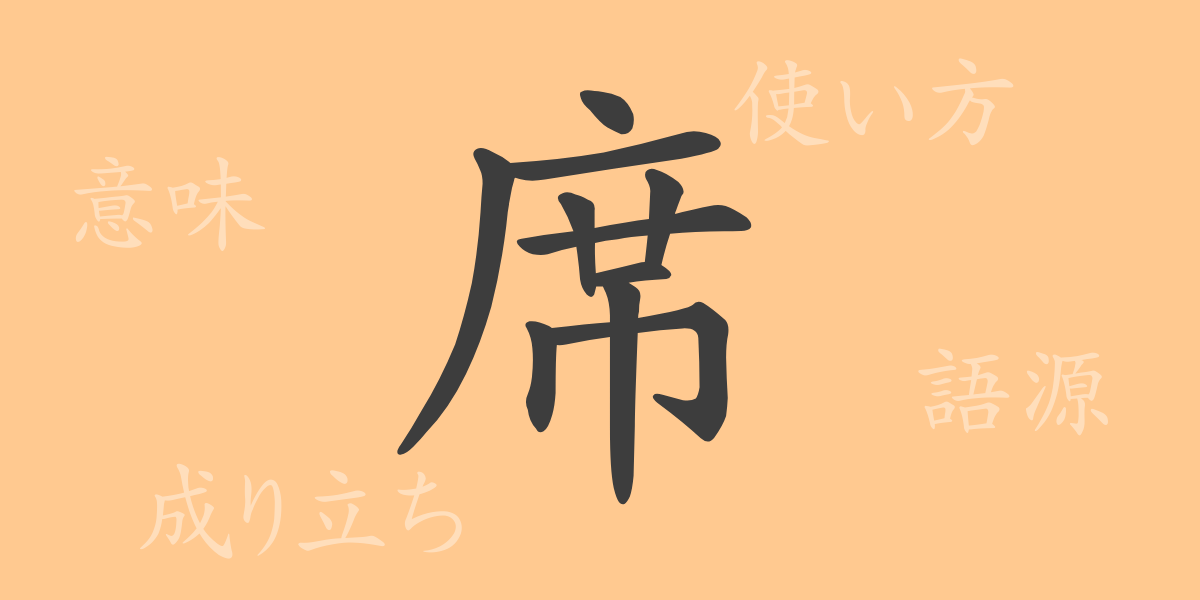In Japanese, numerous kanji are used daily, and ‘席’ (セキ) is an especially familiar one. From seating arrangements in meeting rooms and dining events to “one performance” in the world of arts, it permeates our lives. This article delves into the hidden history and meanings behind the kanji ‘席’, enhancing our understanding of it as Japanese speakers.
Origins of 席
The kanji ‘席’ evolved from ancient Chinese pictographs. Initially composed of ‘糸’ (いと) meaning thread and ‘巛’ (かわ) indicating crossing rivers, it represented ‘textile’. Over time, as textiles were used for laying on surfaces, it transitioned to signify a ‘place’ or ‘position’, evolving into the modern ‘席’, which denotes a place or status.
Meaning and Usage of 席
In modern Japanese, ‘席’ refers to a place to sit or a position or title within a hierarchy. It appears in various contexts, such as ‘席次’ (seating order) at meetings, ‘席替え’ (seat changes) in schools, and ‘役員席’ (executive seats) in companies. Phrases like ‘空席’ (vacant seat) and ‘席を外す’ (leave one’s seat) demonstrate that ‘席’ transcends mere physical spaces.
Readings, Stroke Count, and Radical of 席
Let’s explore the readings, stroke count, and the radical of the kanji ‘席’.
- Readings: On’yomi ‘セキ’, no specific kun’yomi.
- Stroke Count: 10 strokes.
- Radical: ‘巾’ (はば・きんべん).
Phrases and Proverbs Using 席
Many idioms and proverbs include ‘席’, each reflecting its underlying meanings:
- 主席 (しゅせき): The most important seat in a group or organization, or the person who holds this position.
- 欠席 (けっせき): Absence from meetings or classes.
- 席巻 (せっけん): To completely dominate a region or field.
- 席を譲る (せきをゆずる): To give up one’s place or position to someone else.
- 一席ぶつ (いっせきぶつ): To perform a piece or tell a story.
These expressions play a significant role in Japanese communication, facilitating smooth social interactions.
Conclusion on 席
The meanings embedded in a single kanji reflect a nation’s culture and history. ‘席’ is no exception, holding a significant place in Japanese life. It signifies not just a physical spot but also social status and roles, embodying the richness of the Japanese language. Through this article, understanding the deep meanings and contexts of ‘席’ will hopefully enrich your comprehension of Japanese.

























